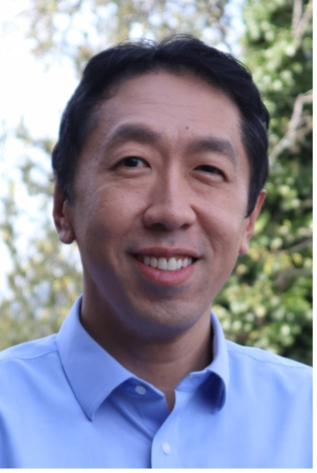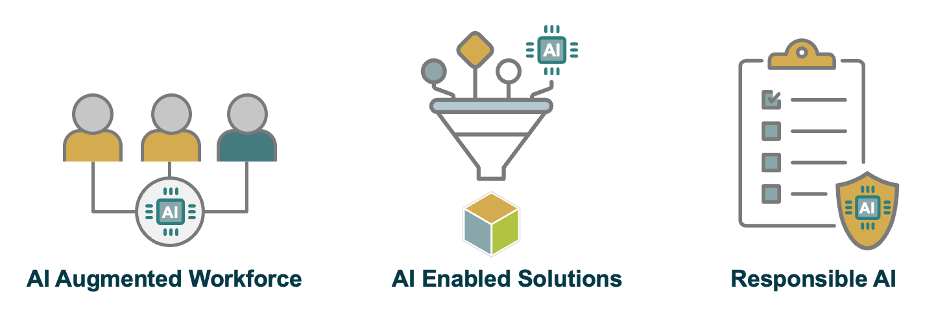No matter where you turn today, everyone is talking about Artificial Intelligence (AI). Just a little more than a year ago, this was a topic reserved for science fiction enthusiasts and tech geeks. Now, whether you are checking your news feed or chatting with friends, AI will inevitably find its way into the conversation. Most of the credit for that shift goes to OpenAI and their decision to release ChatGPT to the world in November 2022. In the 14 months since, ChatGPT has gone from something few knew about to a topic of intense discussions, from the corporate conference table to the kitchen table.
In 2021, Dean noted that increased investments by venture capital and private equity companies were going into AI projects. Through our deeper research we could see well before the release of ChatGPT that radical advances in this technology were coming that would impact every business of every size, in every industry, in every corner of the globe. We didn’t know at the time when we wrote our initial articles on AI that it was going to be ChatGPT; we just sensed it was going to be big. So big, in fact, that it had the potential to not only change the ways of working for our customers but also to open incredible new business opportunities for companies to build AI capabilities into their products. We also sensed a huge risk for our SAFe enterprise customers if they were caught off guard by this new technological revolution, and we wanted every company in the SAFe family to be prepared.

AI is the new electricity.
Dr. Andrew Ng, Co-founder of Google Brain, Coursera, and DeepLearning.AI
Adjunct Professor, Stanford University
The release of ChatGPT and the global buzz around generative AI that followed confirmed our hypothesis. ChatGPT and the avalanche of generative AI tools and products that have emerged over the last year have changed the conversation in every boardroom in the world. Virtually every CEO has now been asked to articulate their company’s strategy for leveraging AI. Innovators and many in the early majority have sound answers, but many more companies are struggling to move beyond the AI exploration stage to operationalizing and scaling production-hardened AI-enabled solutions.
So last summer, we embarked on even deeper research into the implications of the emergence of AI, and specifically generative AI, on the product development lifecycle using the Lean-Agile principles and practices of SAFe. We spent weeks interacting with experts in AI development to learn how this technology changed their ways of working. We surveyed thousands of SAFe customers in every role, from executive to developer, to understand the impacts of AI on their organizations. We attended every talk on AI at the DevOps Enterprise Summit and had deep conversations with a few of the presenters. We have also been experimenting with our own AI-enabled solutions inside Scaled Agile.
Here are the key learnings we took away from ‘The Summer of AI ’23:’
- Agility, as promoted by SAFe, is a required foundation for building AI solutions; they require even faster iteration, validation, and continuous updates than traditional applications.
- Most of our customers are actively experimenting with AI, but there are few examples of successfully operationalized AI solutions, especially using generative AI.
- The use of generative AI tools like ChatGPT for individual productivity is exploding with an avalanche of co-pilot apps and tools that can help virtually every role in the organization reduce time, effort, and toil for a broad range of tasks.
- More and more well-known software vendors whose products are already being used by enterprises are adding generative AI features to their solutions, greatly simplifying the ability to leverage this technology.
- Fears about using AI (compliance, data leakage, misuse, legal and ethical concerns) remain the top barriers to the broader adoption of AI within SAFe enterprises.
We wanted to share what we learned as quickly as possible with our SAFe community. So, starting in November last year, we provided a series of ‘members-only’ webinars to outline our vision for new guidance and learning opportunities we are building from our most recent research on AI. The attendance exceeded all expectations, and the feedback was tremendous! (You can still access the recordings of these webinars on SAFe Studio.)
In the coming months, we plan to release a completely updated version of the AI article in SAFe 6.0 that positions AI as a new critical competency for SAFe enterprises. It will incorporate our latest insights and guidance for how to leverage SAFe to overcome the biggest hurdles customers are facing with the adoption of AI. We will follow this new overview article with more detailed guidance on the specific steps organizations can take to:
- Build, operate, and scale AI-enabled solutions with SAFe
- Increase the productivity of SAFe roles with generative AI
- Achieve ‘Responsible AI’

Our conversations with customers on overcoming the risks inherent in using AI technologies have been so profound that we have accelerated the creation of a learning product specifically designed to help organizations launch and improve their Responsible AI initiatives. The Achieving Responsible AI with SAFe workshop recently completed its inaugural beta test with highly encouraging results. Seats are available in the additional beta test workshops and in the SAFe Summit Berlin post-conference workshop. (Click the hyperlinks for more information and to register.)
Speaking of the SAFe Summit Berlin, stay tuned for a coming announcement on how AI will be featured in one of our main stage presentations!
We’ve worked hard to keep our SAFe community informed about everything we are learning related to AI and SAFe, but this is a domain that is changing more rapidly than anything else we have ever seen! Connect with us in the Artificial Intelligence and SAFe forum in SAFe Studio, and tell us what you are experiencing with AI in your company! Let’s keep the conversation going!
As always, be SAFe!
Dr. Steve